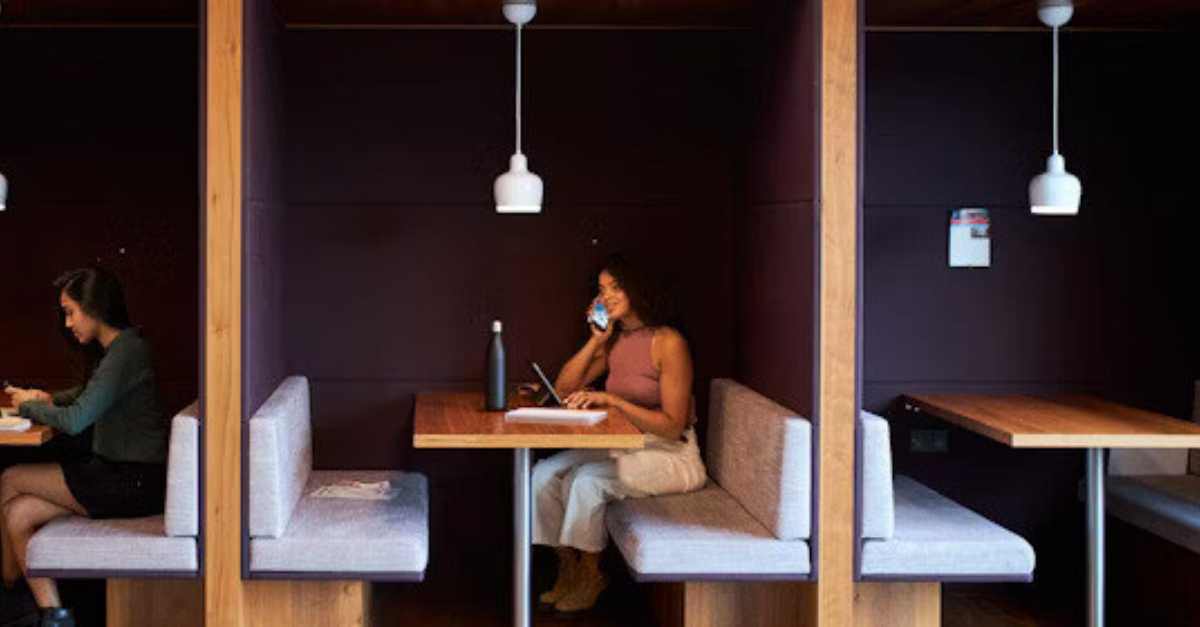
Understanding Desk Hoteling Software as a Smart Office Solution
The workplace evolution: Learn why an effective desk hoteling software may be the key to embracing a multi-use office or campus building layout ...
Solutions
Workplace Management Solutions
Real Estate Management Solutions
Maintenance Management Solutions
Energy Management Solutions
Engineering Document Management Solutions
Asset Management Solutions
Automate campus scheduling for classes, meetings, and exams with our EMS software.
Plan and manage conferences effortlessly with EMS software to impress guests and streamline operations.
Boost workplace flexibility and maximize space use with seamless desk and room booking.
Organize workplace or campus events smoothly, creating memorable experiences.
Optimize workspace, manage allocations efficiently, and reduce costs with our space management solutions.
Deliver projects on time and within budget by improving communication, collaboration, and efficiency with our software.
Streamline lease accounting for ASC 842, IFRS, and GASB compliance.
Manage leases efficiently by tracking key dates, analyzing costs, and ensuring compliance.
Centralize data and analytics for better insights, faster negotiations, and revenue growth.
Centralize facility and asset maintenance, automate work orders, and ensure compliance with our CMMS software.
Extend asset life, reduce downtime, and prevent costly repairs with data-driven monitoring.
Prevent equipment failures and extend asset life by detecting and addressing issues early.
Make sustainable, cost-efficient energy decisions by monitoring and optimizing power consumption.
Remotely monitor and control equipment with real-time data to predict issues, boost efficiency, and reduce downtime.
Easily share and collaborate on documents, creating a single source of truth for engineers and contractors.
Manage and analyze assets across their lifecycle to schedule maintenance, reduce downtime, and extend lifespan.
Improve visibility, automate work orders, and ensure compliance for efficient facility and asset management.
Resources
Browse our full library of resources all in one place, including webinars, whitepapers, podcast episodes, and more.
Support
Looking for access to technical support, best practices, helpful videos, or training tools? You’ve come to the right place.
About Accruent
Get the latest information on Accruent, our solutions, events, and the company at large.

Discover how the EMS mobile app Direct Spaces makes for smoother interactions and helps create a frictionless online experience
This year, the country is officially settling into the “new normal,” with campuses and corporate spaces getting used to more hybrid, socially distanced experiences for classes, meetings and day-to-day interactions. But getting this transition to work well and truly feel “normal” is no easy feat: it requires seamless, easy-to-use, intuitive technology that’s purpose built to facilitate interactions and create a frictionless online experience.
Accruent’s EMS mobile app Direct Spaces is one of those technologies - and if you’re not using a mobile room and space booking software, your business could already be falling behind. Here’s everything you need to know.

For decades now, campuses and workplaces have shifted their focuses away from the “traditional office model” and toward creating more interactive, configurable spaces that provide rich experiences for students and employees.
There are a few reasons for this.
Broadly speaking, digital transformations across all facets of life— including buying groceries, booking flights, or submitting work requests for utilities— have changed the way people perceive quality experiences, making them come to expect seamless digital experiences as part of day-to-day life.
In the workplace, more specifically, smartphones, tablets, laptops and an array of software applications and cloud capabilities have unchained employees and students from desks, allowing them to step away from their old hardware and embrace more flexibility and technological freedom. And that’s exactly what today’s workers and students want to do: studies have shown that Millennials – which now make up the largest percentage of the workforce – don’t want to be assigned to a particular space. Instead, they want to flow between spaces and choose their hours, focus and space (and you can be sure this is also true about up-and-coming Gen Z).
What’s more, this shift also makes good business sense. As Jacob Morgan points out, maximizing productivity in a modern workplace is all about allowing employees to engage in multiple modes of work so they can feel better and work more effectively. And traditional spaces just don’t do that. As a result, they eat away ROI: as much as 40% of a traditional office's dedicated desk space sits unused on a given day, an issue which greatly contributes to inflated real estate overhead (the largest cost, besides people, for most businesses). In short – the world has changed, and multi-use, hybrid spaces are the future.
That’s why most modern campuses and corporate environments have evolved beyond simply using space and moved toward creating full-fledged, multi-use experiences rich with their own atmosphere and culture.
Now, as organizations put more dollars behind enhancing their spaces accordingly beyond a standard use-case, there’s an increased need to do this the right way and understand exactly:
As of 2020, there is also the need to take COVID – and employee safety – into account. This requires that users also enhance their ability to:
Getting this right in a modern office or campus ultimately requires intuitive, intelligent mobile space booking using a tool like the EMS mobile app, Direct Spaces.
As a critical partner for customers throughout this evolution, Accruent’s EMS has provided data-backed insights to help users understand, improve and strategically plan for the future of the experience-based space.
The new EMS Direct Spaces follows this natural evolution, helping institutions and organizations create multi-use spaces that meet user expectations while facilitating social distancing and organizational needs for safety protocols.
And organizations that don’t embrace mobile are sure to fall behind.

There are a few key general considerations that make mobile tools an absolute necessity moving forward:
All this certainly applies to your space booking tools, which means that if you have a room booking system without mobile capabilities, you’re already falling below customer expectations – not to mention missing the level of digital transformation that’s required to excel in a post-COVID world.
The new EMS Mobile App will lead the pack in this space, providing the unified, mobile-first space booking system that today’s employees and students demand.
The EMS Mobile App will provide employees and students with a unified, mobile-first experience that allows them to use their smartphone to navigate, simplify and streamline each aspect of their daily life, including navigating and booking their workplace and campus facilities.
This is accomplished through a range of features that allow users to:
And, of course, it’s all backed by EMS’ analytics and data-driven insight, which can help users maximize office and campus space ROI and enhance productivity while maintaining social distancing.
The workplace evolution: Learn why an effective desk hoteling software may be the key to embracing a multi-use office or campus building layout ...
How do you get the most out of office space that is inherently fluid? Explore how to optimize workspaces for productivity ― and the tools needed to ...
Clearly, the way we work has changed. See how a modern workplace reservation system can help you empower your hybrid workforce and improve space ...
Subscribe to stay up to date with our latest news, resources and best practices.
* To unsubscribe at any time, please use the “Unsubscribe” link included in the footer of our emails.